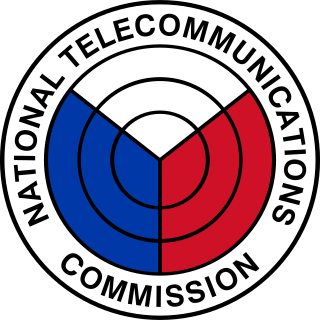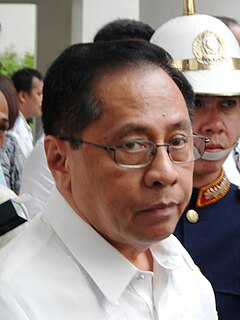
The United States Department of Justice (DOJ), also known as the Justice Department, is a federal executive department of the United States government tasked with the enforcement of federal law and administration of justice in the United States. It is equivalent to the justice or interior ministries of other countries. The modern incarnation of the department was formed in 1870 during the Ulysses S. Grant presidency. The department is composed of federal law enforcement agencies, including the U.S. Marshals Service, the Federal Bureau of Investigation, the Bureau of Alcohol, Tobacco, Firearms and Explosives, and the Drug Enforcement Administration. The primary actions of the DOJ are investigating instances of white collar crime, representing the U.S. government in legal matters, and running the federal prison system. The department is also responsible for reviewing the conduct of local law enforcement as directed by the Violent Crime Control and Law Enforcement Act of 1994.
In most common law jurisdictions, the attorney general or attorney-general is the main legal advisor to the government. The plural is attorneys general. In some jurisdictions, attorneys general also have executive responsibility for law enforcement, prosecutions or even responsibility for legal affairs generally. In practice, the extent to which the attorney general personally provides legal advice to the government varies between jurisdictions, and even between individual office-holders within the same jurisdiction, often depending on the level and nature of the office-holder's prior legal experience.
A solicitor is a legal practitioner who traditionally deals with most of the legal matters in some jurisdictions. A person must have legally-defined qualifications, which vary from one jurisdiction to another, to be described as a solicitor and enabled to practise there as such. For example, in England and Wales a solicitor is admitted to practise under the provisions of the Solicitors Act 1974. With some exceptions, practising solicitors must possess a practising certificate. There are many more solicitors than barristers in England; they undertake the general aspects of giving legal advice and conducting legal proceedings.
In England and Wales, Northern Ireland and most Commonwealth and colonial governments, the chief law officer of the Crown is the Attorney General.
The Solicitor General of India is subordinate to the Attorney General for India. They are the second law officer of the country, assists the Attorney General, and is assisted by Additional Solicitors General for India. Currently, the Solicitor General of India is Tushar Mehta. Like the Attorney General for India, the Solicitor General and the Additional Solicitors General advise the Government and appear on behalf of the Union of India in terms of the Law Officers Rules, 1972. However, unlike the post of Attorney General for India, which is a Constitutional post under Article 76 of the Constitution of India, the posts of the Solicitor General and the Additional Solicitors General are merely statutory. Appointments Committee of the Cabinet(ACC) recommends the appointment and president officially appoints the Solicitor General. The proposal for appointment of Solicitor General, Additional Solicitor General is generally moved at the level of Joint secretary/Law Secretary in the Department of Legal Affairs and after obtaining the approval of the Minister of Law & Justice, the proposal goes to the ACC and then to the president.

The Supreme Court is the highest court in the Philippines. The Supreme Court was established by the Second Philippine Commission on June 11, 1901 through the enactment of its Act No. 136, an Act which abolished the Real Audiencia de Manila, the predecessor of the Supreme Court.
An advocate general of a state is a senior officer of the law. In some common law and hybrid jurisdictions the officer performs the function of a legal advisor to the government, analogous to attorneys general in other common law and hybrid jurisdictions. By contrast, in the European Union and some continental European jurisdictions, the officer is a neutral legal advisor to the courts.
A copyright is the legal protection extended to the owner of the rights in an original work. Original work refers to every production in the literary, scientific, and artistic domains. The Intellectual Property Office (IPOPHL) is the leading agency responsible for handling the registration and conflict resolution of intellectual property rights and to enforce the copyright laws. IPOPHL was created by virtue of Republic Act No. 8293 or the Intellectual Property Code of the Philippines which took effect on January 1, 1998, under the presidency of Fidel V. Ramos.

The Department of Justice is under the executive department of the Philippine government responsible for upholding the rule of law in the Philippines. It is the government's principal law agency, serving as its legal counsel and prosecution arm. It has its headquarters at the DOJ Building in Padre Faura Street, Ermita, Manila.

The Sandiganbayan is a special appellate collegial court in the Philippines that has jurisdiction over criminal and civil cases involving graft and corrupt practices and other offenses committed by public officers and employees, including those in government-owned or government-controlled corporations. The special court was established by Presidential Decree No. 1486 of the 1973 Constitution. It was subsequently modified by Presidential Decree No. 1606 and by Republic Acts numbered 7975 and 8249 the 1987 Constitution. It is equal in rank to the Court of Appeals, and consists of fourteen Associate Justices and one Presiding Justice. The Office of the Ombudsman owns exclusive authority to bring cases to the Sandiganbayan.

The National Telecommunications Commission is an attached agency of the Department of Information and Communications Technology responsible for the supervision, adjudication and control over all telecommunications services and television and radio networks throughout the Philippines.

Agnes Vicenta Salayo Torres-Devanadera, also known as Agnes VST Devanadera is the 41st Solicitor General or Attorney General of the Republic of the Philippines. She was appointed on February 22, 2007 by then-Philippine President Gloria Macapagal-Arroyo, succeeding Antonio Nachura who was appointed in January 2007 to the post of Associate Justice of the Supreme Court of the Philippines. Devanadera assumed office on March 2, 2007. She is the first woman to occupy the office. Before her appointment Devanadera was a Government Corporate Counsel. She also became a candidate for the position of Associate Justice of the Supreme Court of the Philippines that was being vacated by Ruben T. Reyes after his retirement on January 2, 2009.

The Attorney General of Sri Lanka is the Sri Lankan government's chief legal adviser, and its primary lawyer in the Supreme Court of Sri Lanka. The Attorney General is usually a highly respected Senior Advocate, and is appointed by the ruling government. The current Attorney General is Sanjay Rajaratnam. The president does not have any power to make orders, mandatory or otherwise, to the attorney general. He heads the Attorney General's Department which is the public prosecutor.

Roberto A. Abad is a lawyer and judge who served as Philippine Supreme Court Associate Justice from August 7, 2009, to May 22, 2014.
The Department of Justice is the current Western Australian government department responsible for the provision of high quality and accessible justice, legal, registry, guardianship and trustee services to meet the needs of the community and the Western Australian Government.

Kapamilya Box Office (KBO) was a Philippine pay-per-view television channel. It was initially launched in May 2015 as a pay-per-view channel intended for the historic boxing match between Manny Pacquiao and Floyd Mayweather Jr. It was formerly registered as the "TVplus Xtra Channel" but became inactive after the coverage. By April 2016, the channel was rebranded as KBO.

Jose Callangan Calida is a Filipino lawyer currently serving as the Solicitor General of the Philippines. He was sworn into the post on June 30, 2016 to replace Florin Hilbay. He previously served in the Arroyo administration as Undersecretary of the Department of Justice and as Executive Director of the Dangerous Drugs Board.
Philippine President Rodrigo Duterte signed Executive Order No. 02, also known as the Freedom of Information (FOI) Program, on July 23, 2016 in Davao City. The executive order established the first freedom of information (FOI) Program in the Philippines covering all government offices under the Executive Branch. It requires all executive departments, agencies, bureaus, and offices to disclose public records, contracts, transactions, and any information requested by a member of the public, except for matters affecting national security and other information that falls under the inventory of exceptions issued by Executive Secretary Salvador Medialdea. The landmark order was signed two days before Duterte delivered his first State of the Nation Address and just three weeks after he assumed the presidency on June 30, 2016.

The quo warranto petition against Maria Lourdes Sereno, filed before the Supreme Court of the Philippines, led to the landmark case Republic v. Sereno, which nullified Maria Lourdes Sereno's appointment as Chief Justice of the Supreme Court of the Philippines, finding that she never lawfully held the office due to a lack of integrity for failing to file certain required financial documents. As a result, she was ousted from the Supreme Court as Chief Justice. The Court handed down its ruling on May 11, 2018. The case began with a filing before the House of Representatives of an impeachment demand, the accusations in which Solicitor General Jose Calida used as the factual basis for his quo warranto petition.

The Chief of the Philippine National Police is the head of the Philippines' national police body, the Philippine National Police (PNP). The position is invariably held by a Police General, a four star general police officer.













